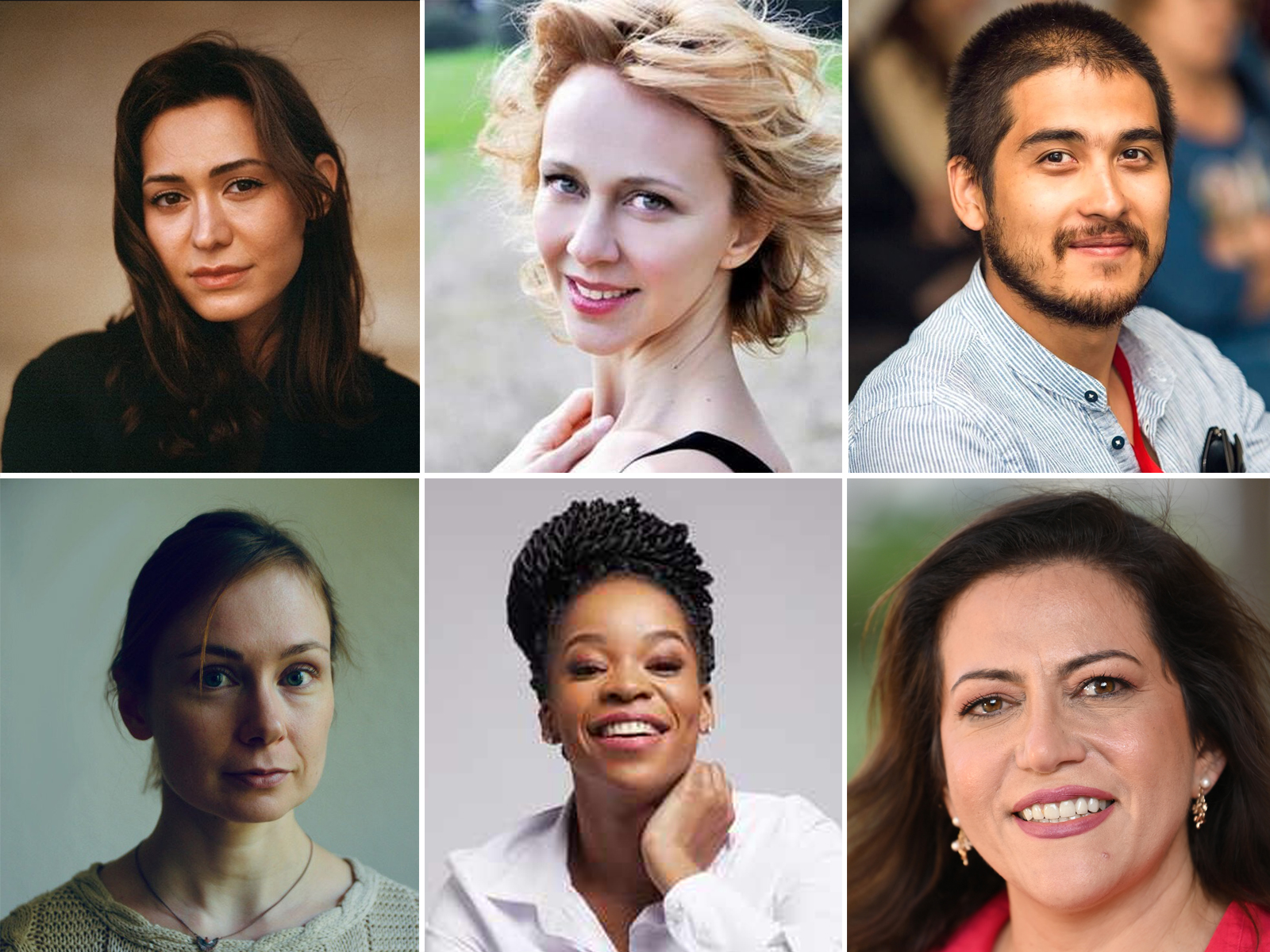
- HFPA
Residency Fellows Show Impressive Work
As part of the 2023 HFPA Residency program, participating film makers introduced their films at a Los Angeles screening, followed by a Q&A moderated by an HFPA journalist.
LA-based Azeri actor/director Tahmina Raffaella screened Banu, an affecting chronicle of a woman’s quest to obtain a divorce and custody of her son, along with a personal emancipation from an abusive marriage, in a lonely struggle against the patriarchal mores that stack the game against her. Banu’s story, as written, directed and portrayed by Raffaella herself, unspools with quiet tension against the backdrop of a city and country overtaken with patriotic fervor as the latest conflict plays out against the Second Nagorno-Karabakh war.
Monica Dugo’s Come le tartarughe (Like Turtles) also features the director in the principal role: a Roman mother and housewife who literally retreats into a closet, where she takes up residence after her emotionally stunted husband decides to leave the family. Refusing to leave herself, she makes her last stand of sorts in her armoire, from which she seeks both to regain her own inner balance and to recalibrate the relationships that have taken a toll on her emotional equilibrium, particularly that with her teenage daughter.
Eldar Shibanov’s Mountain Onion is a whimsical and delightful family comedy set on the high steppes between Kazakhstan and China. A young couple has moved here from the city to simplify their lives with their young children. The kids have no complaints about their new lifestyle and yurt, but the wife has about had it with the temporary living arrangements, which threaten to become permanent due to the husband’s questionable skills in building a permanent home. Things come to a head as the kids undertake a hitchhiking expedition to nearby China in search of the “Golden Viagra” which they believe holds the power to save their parents’ marriage.
In Finnish director Hanna Västinsalo’s Palimpsest, a medical procedure allows elderly residents of a retirement home to regain their youth. It is a science fiction conceit that allows the film to explore the psychological and existential implications of reversing the aging process and the effect it has on two seniors as they shed the years – an enviable dilemma on the surface, which in reality is more fraught than you might think, eliciting very different reactions to a literal second chance at life.
In African America, Phumelele Mthembu has also crafted a narrative about life choices, second chances and the consequences they can have. The protagonist is a young woman (played by Mthembu) who escapes her native Johannesburg, a budding career and a promised husband for New York and a second chance at fulfilling a dream she was kept from pursuing. Her trajectory will require her to navigate two lives, two countries and many forks in the road before she can find her way.
Soudade Kaadan’s Nezouh is not exactly a film of magic realism, but certainly brings a fable-like quality – and above all, humanity – to a story set in the horrific conflict that has torn Syria apart. The war has literally reduced Damascus to rubble; as the rebels’ doomed resistance is about to be swept aside by the army’s inexorable advance, a single family goes to extraordinary lengths to maintain a semblance of normality within the confines of their modest apartment. The father adamantly refuses to join most of the population, which has long fled the city and country, a bid for safety which would mean becoming dispossessed, or nezouh. However, as the rumble of war and the falling of bombs close in, taking their inevitable toll on the apartment, each family member must face the realities which reshape not only their country but their individual inner worlds.
Each one of these films expresses emotional truths in ways that restored our faith in cinema’s infinite capacity for expressing universal sentiments in stunningly creative ways. We can’t wait to see future films from our 2023 fellows.

